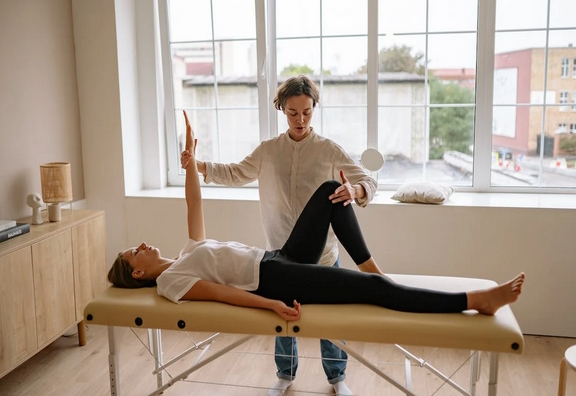Utilize Chiropractic Care to Your Fullest Potential at Coolum Beach
- Written by NewsServices.com

Welcome to Coolum Beach Chiropractic, your local chiropractor in beautiful Coolum Beach. Our team of experienced and dedicated practitioners are committed to providing you with the highest quality of care, tailored to meet your individual needs. We provide a range of treatments, from manual manipulations to low-force techniques such as Activator Method and SOT Blocking. We understand that everyone’s health journey is unique and our goal is to help you reach your full potential for health and well-being through natural chiropractic care. We look forward to helping you feel better soon.
Benefits of Seeing a Chiropractor at Coolum Beach
Seeing a chiropractor can have many benefits for the health and well-being of individuals. Chiropractor Coolum Beach is a great option to consider if you're looking for chiropractic care in the Coolum area. Here are just a few of the benefits of seeing a chiropractor at Coolum Beach:
- Pain Relief: One of the most common reasons people seek out chiropractic care is to alleviate pain from various sources, such as muscle tension or joint inflammation. By performing manual adjustments and other treatment methods, your chiropractor can reduce your pain levels significantly — sometimes even eliminating it altogether!
- Improved Mobility: If you suffer from chronic stiffness or limited range of motion, seeing a chiropractor can help improve your mobility by relieving pressure on joints and helping them function optimally once again. This can be especially useful if you are an athlete trying to maintain peak performance levels!
- Reduced Stress Levels: The physical adjustments made during visits with your local Coolum Beach Chiropractor also help reduce stress levels in the body by improving circulation throughout your muscles and organs, allowing for better relaxation overall — which helps keep stress-related illnesses at bay!
- Improved Posture: Poor posture often goes unnoticed.
What Can I Expect During My Visit?
If you're planning to visit a healthcare provider, you may be wondering what to expect during your visit. Whether it’s your first time or you’ve been before, it can help to know what will happen during the appointment. Here are some of the things you can expect when visiting a healthcare provider.
First, your doctor will probably take some time to get to know you and discuss your medical history and any concerns that led up to this visit. They may also ask questions about lifestyle factors such as diet and exercise habits or any medications or supplements that you might be taking. Additionally, they may perform a physical exam if necessary for gathering information about your health condition or ruling out other possible causes of symptoms.
Once the doctor has collected all the necessary information, they will likely discuss a diagnosis or treatment plan with you – depending on why you scheduled an appointment in the first place. If further tests are needed (such as blood tests), these will typically be ordered at this point as well. The doctor should explain anything that's unclear and answer any questions that come up during this part of the appointment too so don't hesitate to speak up if anything is confusing!
Conditions that Can Be Treated by a Chiropractor at Coolum Beach
Chiropractic care is a safe, effective, and non-invasive form of health care that focuses on the diagnosis and treatment of musculoskeletal disorders. It can be beneficial to those suffering from a wide variety of conditions. At Coolum Beach, there are several chiropractors who specialize in treating these conditions.
One common condition that can be treated by a chiropractor at Coolum Beach is back pain. Back pain can range from mild to severe and can be caused by a variety of factors including muscle strain, poor posture, or an injury. A chiropractor at Coolum Beach will assess your condition and develop an individualized plan for treatment that may include spinal manipulation or other therapies such as massage therapy or rehabilitative exercises.
Headaches are another common condition that can benefit from the care provided by a chiropractor at Coolum Beach. Headaches may be caused by tension in the neck muscles, misaligned vertebrae in the spine, or even stress-related issues such as anxiety and depression. A skilled practitioner will use gentle manipulations to restore proper alignment to the spine as well as offer advice on lifestyle changes that may help relieve headaches over time.
Conclusion
Chiropractor Coolum Beach provides excellent chiropractic care for patients of all ages. Their experienced and knowledgeable team of chiropractors are dedicated to providing quality healthcare and personalized treatment plans that help patients achieve maximum health, mobility, and relief from pain. Through their advanced treatments, such as spinal adjustments, massage therapy, and physiotherapy services, they strive to improve the quality of life for each patient. Whether you are seeking relief from chronic pain or want to improve your overall health with a preventative approach to wellness care, Chiropractor Coolum Beach is the right choice.

















